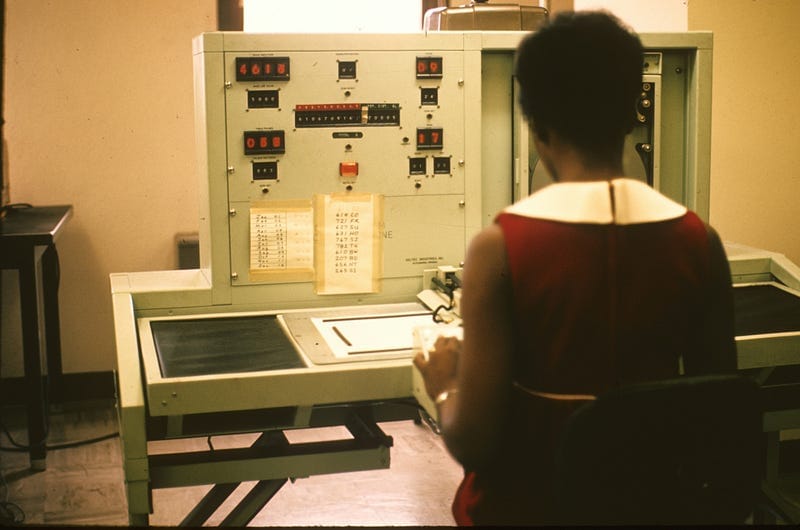What 4 Years of Python Development Have Taught Me the Hard Way
The lessons I wish someone had told me before the bugs, burnout, and endless refactoring cycles.

I thought I knew Python — until real-world projects humbled me.
What 4 Years of Python Development Have Taught Me the Hard Way
The honeymoon phase doesn’t last — here’s what comes next.
When I first picked up Python, everything felt magical. Indentation was beautiful, code read like English, and things “just worked.”
But after four years of building real-world systems — some that scaled, others that crashed spectacularly — I’ve learned that the magic fades quickly once you step outside tutorials and into production.
Here’s what the last four years of Python development have taught me. Not the theory — the hard, humbling, and sometimes painful realities.
1. Clean Code Isn’t a Luxury — It’s a Lifeline
In the beginning, I focused on making things work. If it passed the test, it shipped. But six months later, when I couldn’t understand my own code, I realized how short-sighted that was.
Lessons learned:
- Write code your future self won’t curse at.
- Choose clarity over cleverness — especially with one-liners.
- Break functions early and often. Anything over 30 lines is a red flag.
“If you’re not embarrassed by code you wrote 6 months ago, you’re not growing fast enough.”
2. Dependencies Are a Double-Edged Sword
The Python ecosystem is huge — and that’s both a blessing and a curse. For every problem, there’s a package. But after a few production incidents caused by abandoned or poorly maintained libraries, I got more cautious.
Now I ask myself before installing anything:
- Is this package actively maintained?
- Can I solve this with native Python or fewer dependencies?
- What happens if this library breaks or disappears?
Hard-earned tip: Build the habit of pinning versions in your requirements.txt. You don’t want a silent update crashing your service overnight.
3. The REPL Is Your Best Friend — Use It Like One
For the first year, I underestimated the power of the interactive shell (python, ipython, or bpython). Now, I use it every single day.
Here’s how it helps:
- Test snippets before polluting your codebase.
- Quickly debug logic errors.
- Explore third-party libraries without reading pages of docs.
If you’re not dropping into the REPL regularly, you’re missing out on Python’s best debugging tool.
4. Tests Aren’t Optional — They’re Oxygen
Skipping tests feels fast — until you’re debugging something at 2 AM and wishing you had guardrails.
What I do differently now:
- Write tests before the refactor.
- Use
pytest—it’s intuitive and powerful. - Mock external dependencies aggressively.
Tests aren’t for QA — they’re for your peace of mind.
5. Type Hints Save You More Than You Think
I used to mock type hints. “Python’s dynamic! Why add clutter?” But after joining a large team with multiple contributors, I realized how invaluable type annotations are for both code clarity and tooling.
Why I never skip them anymore:
- Better IDE support and autocomplete.
- Early detection of type mismatches.
- Easier onboarding for new devs.
Add mypy to your CI pipeline. Your future team will thank you.
6. Performance Bottlenecks Rarely Come From Where You Expect
In one project, I rewrote a function three times trying to speed it up — only to realize the real problem was an unindexed database column.
What I learned:
- Profile before optimizing. Always.
- Use tools like
cProfile,line_profiler, orpy-spy. - Don’t guess. Measure.
And yes, sometimes rewriting in Rust isn’t the answer. Optimizing your algorithm or data structure often is.
7. Writing Python Is Easy — Maintaining Python Isn’t
Python’s simplicity tricks you into shipping fast. But that speed can cost you in the long run if you don’t think about architecture, modularity, and documentation.
After years of maintenance, I’ve come to love:
- Decoupled architecture (use interfaces, not hard-coded logic)
- Dependency injection (yes, even in Python)
- Docstrings. Real ones. Not just “# TODO: explain this”
Good code doesn’t just work — it tells a story.
8. Your Tools and Environment Matter More Than You Think
When I invested time into configuring my dev environment — VSCode setup, linters, pre-commit hooks, Docker for local dev — my productivity skyrocketed.
A good Python setup includes:
.editorconfig+ Black + isort- Pyright or mypy for static analysis
- Pre-commit hooks to enforce formatting
Treat your setup as seriously as your code. It pays long-term dividends.
Final Thoughts: The Hard Lessons Are the Most Valuable
If you’re just starting out, I envy you. Python is an incredible language with an amazing community. But real mastery doesn’t come from just learning syntax — it comes from mistakes, late nights, and the slow evolution of your mindset.
If I had to summarize 4 years into one sentence:
Python will teach you quickly — but experience will teach you deeply.
So keep building, keep breaking things, and above all — keep learning the hard way. It’s the only way that sticks.





